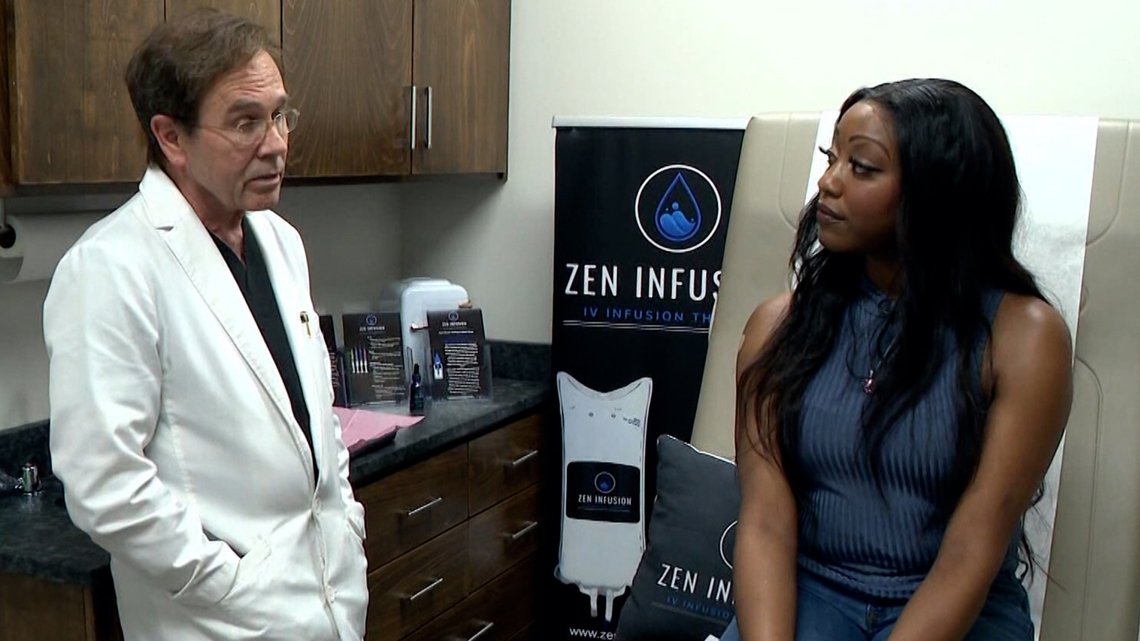We may all think we’re getting enough vitamin D, but that might not always be the case, which is why health experts recommend getting tested.
LITTLE ROCK, Ark. — We may all think we’re getting enough Vitamin D.
While spending just a few minutes outdoors in Arkansas seems like it would almost guarantee you’d get the recommended healthy intake, health experts say that’s not the case.
In fact, the majority of us aren’t getting anywhere near what we need, and it’s impacting our mental and physical health.
Whether you get them through a bottle or food, experts agree that vitamin D, B12, and iron are the three most important vitamins for health.
Unfortunately, many of us need them more than we realize.
“Statistics suggest that one in four Americans is likely vitamin D deficient or insufficient,” said Dr. Chris Shoemake, medical director at Zen Infusion.
He also said that this particular deficiency could lead to serious mental health problems.
“Vitamin D deficiency can lead to a variety of symptoms, including depression, anxiety and insomnia,” Dr Shoemake added.
It can also affect the body.
“Calcium is really essential for bone health, but vitamin D helps us absorb calcium. But if you don’t have vitamin D in your body, you can’t absorb calcium in your digestive tract,” he said.
That’s why Little Rock Medical Spa now offers IV Therapy and one of its newest developments: our new Vitamin D program.
“I was still so tired. I was just too tired,” Mia Hyman said.
Hyman is using the program to receive vitamin D booster shots to help alleviate some of the symptoms he believes are related to vitamin D insufficiency or deficiency.
“Get your blood drawn. That’s the No. 1 thing you should do. Get your blood analysed to see what your vitamin D levels are. That’s always the first step,” she added.
Dr. Robert Weinstein of UAMS echoed her advice.
He said vitamin D deficiency is often overlooked when it becomes serious, which can lead to delayed diagnosis and wasted time and money.
“If it continues for a long period of time, it can cause arrhythmias and seizures. There is compensation from the parathyroid gland, which causes calcium loss from the bones,” Dr. Weinstein explained.
He also said that calcium deficiency can lead to fractures.
“This is a buildup of bone that has no minerals and no strength, which is what happens with vitamin D deficiency. You have a lot of poor quality bone,” he explained.
These fractures can sometimes be fatal.
“Hip fractures have a 20 percent mortality rate. 40 to 60 percent of people who suffer a fracture will never be able to walk again. So, best of all, these deadly fractures can be prevented with vitamin D treatment,” said Dr. Weinstein.
So who should pay more attention?
The Mayo Clinic said people who are obese, have darker skin and are over 65 may have lower vitamin D levels due to diet, low exposure to sunlight and other factors.
“Some hospitals are short 20 to 30 percent of their trainees. [because they are] “Everybody’s working indoors, everybody’s working late into the night,” Dr. Weinstein said.
As a solution, doctors recommend supplements and injections, as well as incorporating more sunlight into your daily life, but in moderation.
“The best time to get sunlight is between 10 am and 2 pm, when UVAB and C rays are at their lowest, so if you can get morning or evening sun exposure, it’s of better quality than the highest UV rays at midday,” Dr Shoemake said.
You may think you’re getting enough vitamin D from your diet and outdoor activity, but you might want to think again. The 2016 National Health and Nutrition Examination Survey found that 94 percent of people age 1 and older don’t get the estimated average vitamin D requirement.
That’s why doctors and health experts are encouraging people to make greater use of supplements.

